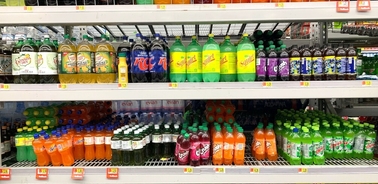- Home
- News And Events
- What’s Going On
- Diversified Or Specialized Companies? Which Has The Advantage In Unstable Sectors?
Diversified or Specialized Companies? Which has the Advantage in Unstable Sectors?

What is the competitive advantage of a diversified company? If for example a new tax is hitting a particular product niche in an industry, which company is suffering more? Diversified or specialized competitors? Today’s environment demands rapid adaptation to turbulent markets. Who is better prepared to face these challenges?
Marco Giarratana and Juan Santaló, Professors of Strategy at IE Business School
The classical answer to this question in Business School classes would be “synergies”, and most of the cases that we teach focus on how to calculate synergies-- that is to say, cost and demand.
However, with respect to strategy, the discussion has shifted recently towards new horizons. The competitive advantage of diversified companies is due in large part to their ability to move resources quickly --financial, human, technological-- from one product niche to another when the sector conditions change. It is a competitive advantage because specialized companies cannot quickly do this. The approach is defined as “resource redeployment”. In our article, Transaction Costs in Resource Deployment for Multiniche Firms, we try to define the industry conditions under which this advantage is higher.
Drink Sector as an Example
We find two interesting results for the drink industry. When the retailers are concentrated and have more power (i.e., big supermarket chains) diversified companies have more advantages vis-à-vis a specialized company. Second, when a particular product niche is populated by an increasing number of specialized producers that compete against each other, (i.e., in the beer niche, an increasing number of specialized craft beer producers) again, diversified companies have an advantage.
Why? Specialized producers suffer a cost increase for shifting a product from one niche to another due to the fragmentation of the niche competition market.
Indeed, to measure this effect, we examined the implementation of tax increases on alcoholic products during several years in eight European countries. What we find is quite interesting.
In the alcoholic niches, the companies that suffer more (fewer sales) are the diversified companies. But diversifiers, after the tax on alcohol, actually saw their sales rise for all the other drink niches that are not alcoholic (water, juices,..). This is because diversifiers can react to market changes by moving resource (mostly shelf space) from one product to another.
We also find that the biggest diversifiers are even able to increase their overall corporate sales after a negative shock like a tax that hits one of the product niches, thanks to their ability to adapt quickly to the new demand change. A great surprise, profiting from a negative shock!
What is the takeaway?
Diversifiers tend to benefit from turbulence in the sector, precisely because turbulence challenges their competitors to adapt. And diversified companies are better at doing this. They benefit from instability for different product niches. Conversely, they tend not to like very stable environments. And—perhaps most noteworthy-- they benefit from environments where specialized producers face added costs for adapting--- like current market conditions.
However, redeployment and diversification imply several organizational costs. Managers should take care to make these internal processes as efficient as possible.